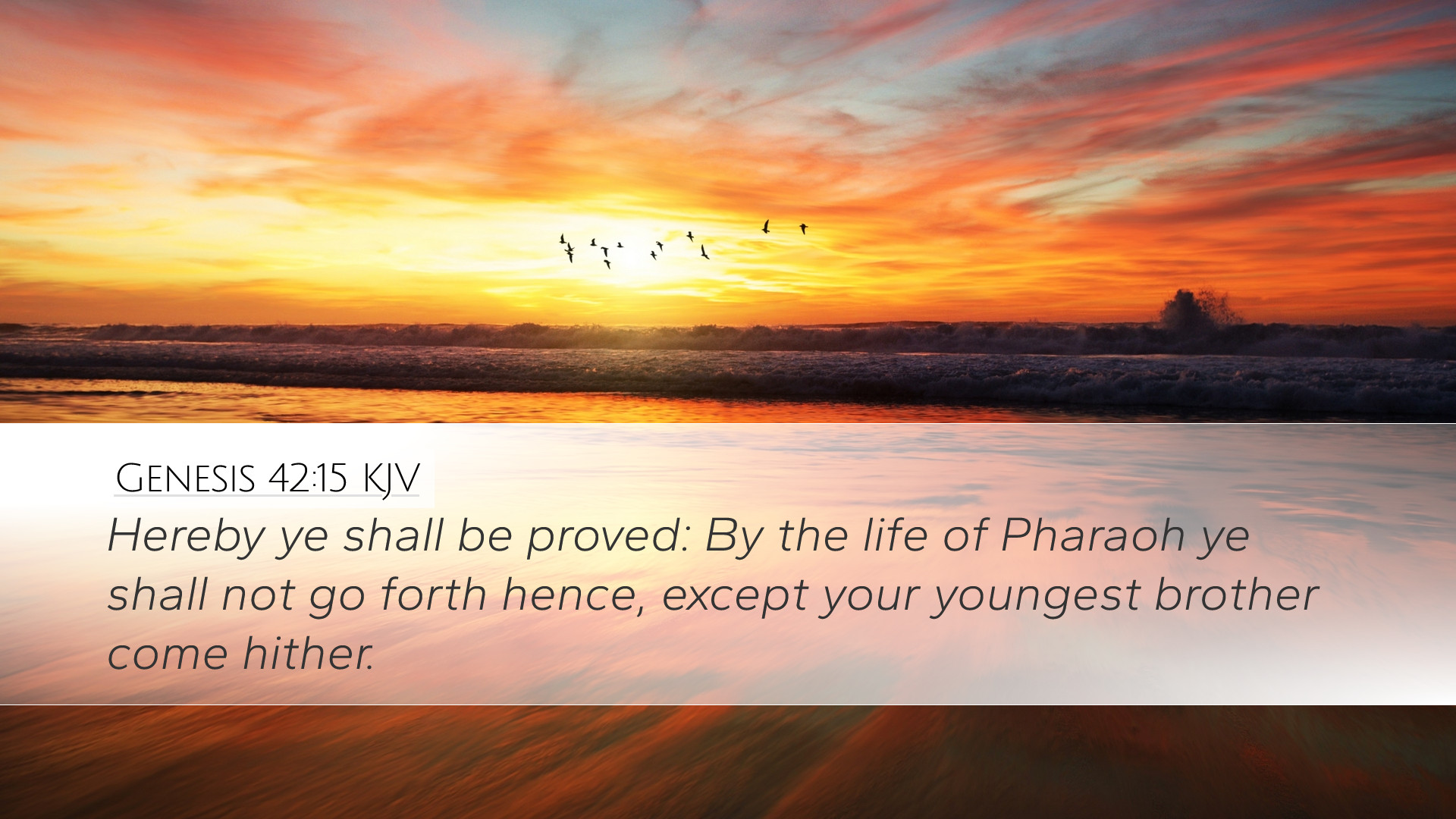Commentary on Genesis 42:15
Verse Reference: Genesis 42:15 - "By this you shall be tested: By the life of Pharaoh, you shall not go from this place unless your youngest brother comes here."
This verse stands at a pivotal moment in the narrative of Joseph and his brothers during their second visit to Egypt during a time of famine. Here, Joseph, now a powerful figure in Egypt, tests his brothers to ascertain their character and to learn about the condition of their family back in Canaan.
Context and Background
The events leading to Genesis 42 involve Joseph being sold into slavery by his brothers and eventually rising to prominence in Egypt. During a famine that affected Canaan, the brothers are compelled to seek grain from Egypt, not realizing that the man they confront is their brother Joseph. The tension builds as Joseph confronts his past and the moral decay of his brothers.
Theological Insights
- Divine Providence: This passage emphasizes the sovereign plan of God in orchestrating events for a greater purpose—both for Joseph and for his family. God uses difficult circumstances to bring about repentance and restoration.
- Testing and Trials: Joseph uses the test of bringing their youngest brother, Benjamin, as a means of revealing their integrity. This resonates with the biblical theme that God often tests His people to strengthen their faith (see James 1:2-4).
- Repentance and Transformation: Through these trials, Joseph aims to see if his brothers have changed since their betrayal of him. This reflects God's desire for true repentance where relationships can be healed and restored.
Commentary Insights
Matthew Henry observes that Joseph's statement “By this you shall be tested” indicates a deliberate examination of his brothers' character. Joseph’s actions can be seen as a reflection of the justice of God that demands accountability while simultaneously offering an opportunity for redemption.
Albert Barnes adds that Joseph's use of the solemn oath “by the life of Pharaoh” highlights the seriousness of his statement. It not only elevates the gravity of the moment but also underscores the tense political and personal dynamics at play.
Adam Clarke notes that this test serves multiple purposes: to satisfy his own curiosity regarding his brother’s welfare and to ensure that they have not resorted to their previous treachery. He emphasizes that this test is spiritual as well as moral, aiming to inspire a deeper reflection within the brothers.
Practical Applications
- Self-Examination: Just as Joseph put his brothers to the test, believers are encouraged to examine their own lives and the sincerity of their repentance. This is a call to individuals to reflect on their past actions and the changes God desires in their lives.
- Family and Relationships: This verse and its surrounding narrative speak to the importance of family dynamics. The healing of broken relationships requires honesty and vulnerability—two qualities necessitated by trials.
- Leadership Integrity: Joseph's position as a leader demanded wisdom and discernment. Spiritual leaders also must navigate complex relational dynamics with integrity and purpose, always aiming for the growth and reconciliation of those they lead.
Conclusion
Genesis 42:15 encapsulates a critical moment of testing and revelation. Joseph’s testing of his brothers serves as a microcosm of the larger theme of reconciliation and divine providence that permeates the book of Genesis. For pastors, students, theologians, and scholars, this verse invites deep reflection on the nature of God’s tests in our lives and the transformative power of humility, repentance, and grace.


